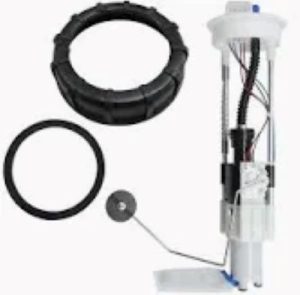A fuel pump has several advantages compared to gravity feed systems, particularly for those vehicles requiring high pressure for continuous and reliable performance. Fuel pumps-whether mechanical or electric-serve to positively pressurize fuel, by which method they can have full control over fuel flow. The standard fuel pumps common in modern vehicles operate within a pressure range of 40 to 60 PSI-a pressure enabling efficient combustion since it is able to maintain an ideal air-fuel mixture. This level of control is necessary in fuel-injected engines, where for good performance quality, stable pressure becomes necessary; this is something gravity feed systems can hardly maintain under most driving conditions.
Gravity feed systems are those that would depend solely on gravity for the conveyance of fuel towards the engine. It is for this reason less effective in a vehicle with complex fueling needs or at high speeds. While working well on small engines, such as motorcycles or low-power machinery, a gravity system cannot cope with changes in demand or reach high pressure to supply fuel. In this condition, gravity feed systems could witness as much as a 15% drop in fuel economy compared to a vehicle that used a pump, especially under load or during acceleration. Without any pressure regulation, fuel starvation is more likely under steep ascents or heavy acceleration because fuel tank positioning may hinder normal fuel flow, causing an engine to run lean and diminish some performance.

Compared to gravity feed systems, one of the largest advantages fuel pumps have is their extensive reliability. Fuel pressure remains consistent when the vehicle is on a slope or at high RPMs. As such high-performance cars and trucks, requiring high volumes of fuel flow employ pumps which can provide over 80 PSI in some cases to avoid fuel starvation as well as harness consistent engine power. Gravity feed systems aren't suitable for these conditions and, therefore, result in limited applications in present car design since the more the demand for performance and good reliability intensifies.
The fuel pumps further assist in emission control by ensuring complete combustion of the fuel efficiently. The incomplete combustion from the inconsistency of fuel delivery in gravity feed systems causes higher emissions and waste of unburned fuel. The general efficiency of environmental influence and fuel economy is reduced. Modern fuel pump systems also interface directly with the engine control modules, which adjust fuel flow in real time and further optimize fuel economy and emissions by ensuring precise fuel delivery under all operating conditions.
In most of the applications, fuel pumps tend to perform better, especially for vehicle operations that must be highly reliable and adaptable under any circumstances. In most of the automotive technologies today, the fuel pump is an essential component in maintaining regulated fuel pressure at a rate that facilitates effective combustion and satisfying a high consumption rate of fuel.